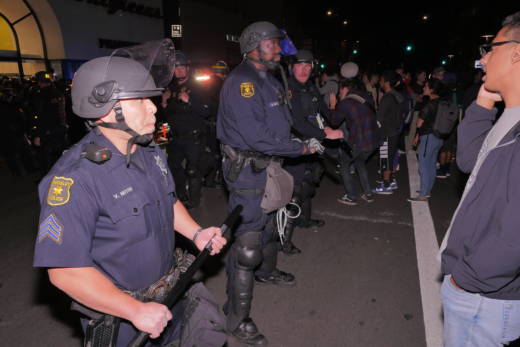A free speech lawsuit against officials at UC Berkeley can move forward, although there is no evidence the school discriminated against speakers with conservative views, a U.S. judge ruled.
U.S. District Judge Maxine Chesney said the Berkeley College Republicans and Young America's Foundation could challenge what they said were secret university restrictions on speakers and a $9,000 fee the school charged to host conservative writer Ben Shapiro.
But Chesney said Wednesday the plaintiffs failed to show there was liberal bias when restrictions were imposed on where conservative commentators such as Ann Coulter could speak and when.
She noted that another right-wing speaker, Milo Yiannopoulos, had received approval to speak on campus, and the plaintiffs did not allege the university imposed restrictions on his talk.
UC Berkeley police canceled Yiannopoulos' scheduled speech in February 2017 just before it was to begin, citing safety concerns. A large crowd had gathered outside and a demonstration turned violent when dozens of black-clad anarchists appeared and attacked some demonstrators and later vandalized some businesses near the campus.
